Running analysis on previously collected and preprocessed data is a great way to test hypotheses without using additional energy to preprocess it yourself. We provide a table describing different open access datasets.
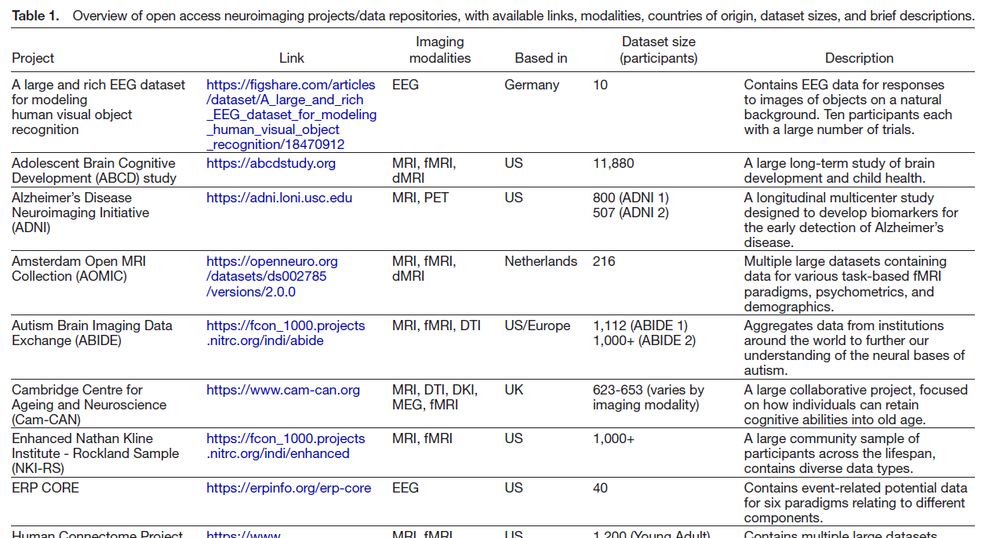
Running analysis on previously collected and preprocessed data is a great way to test hypotheses without using additional energy to preprocess it yourself. We provide a table describing different open access datasets.
Energy is needed to store and backup data. you can reduce your footprint by deleting files you don't need. For #fMRIPrep, junk files make up to 96% of total size.
Our tool fMRIPrepCleanup, automatically finds/removes this data: github.com/NickESouter/...
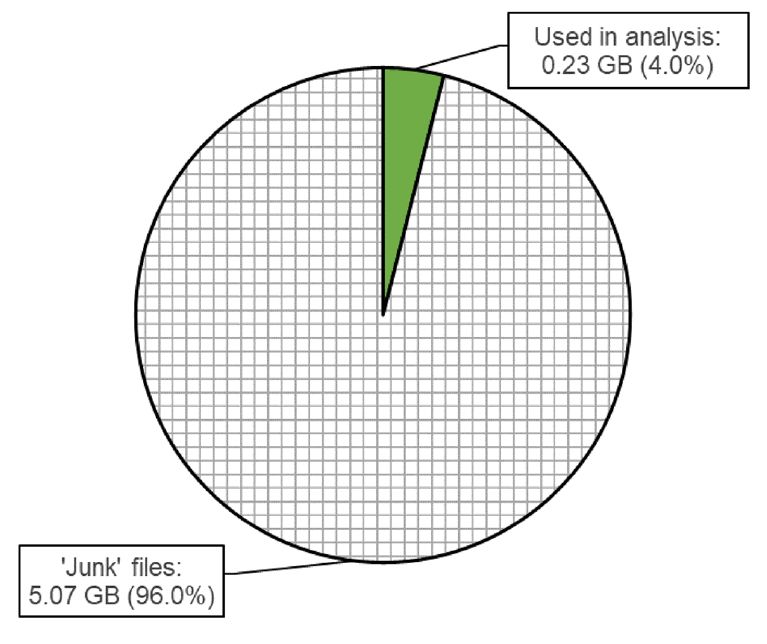
Energy is needed to store and backup data. you can reduce your footprint by deleting files you don't need. For #fMRIPrep, junk files make up to 96% of total size.
Our tool fMRIPrepCleanup, automatically finds/removes this data: github.com/NickESouter/...
You can also consider choosing cloud computing services based in countries/regions with lower average carbon intensity.
2022 data for countries and US states ⬇️
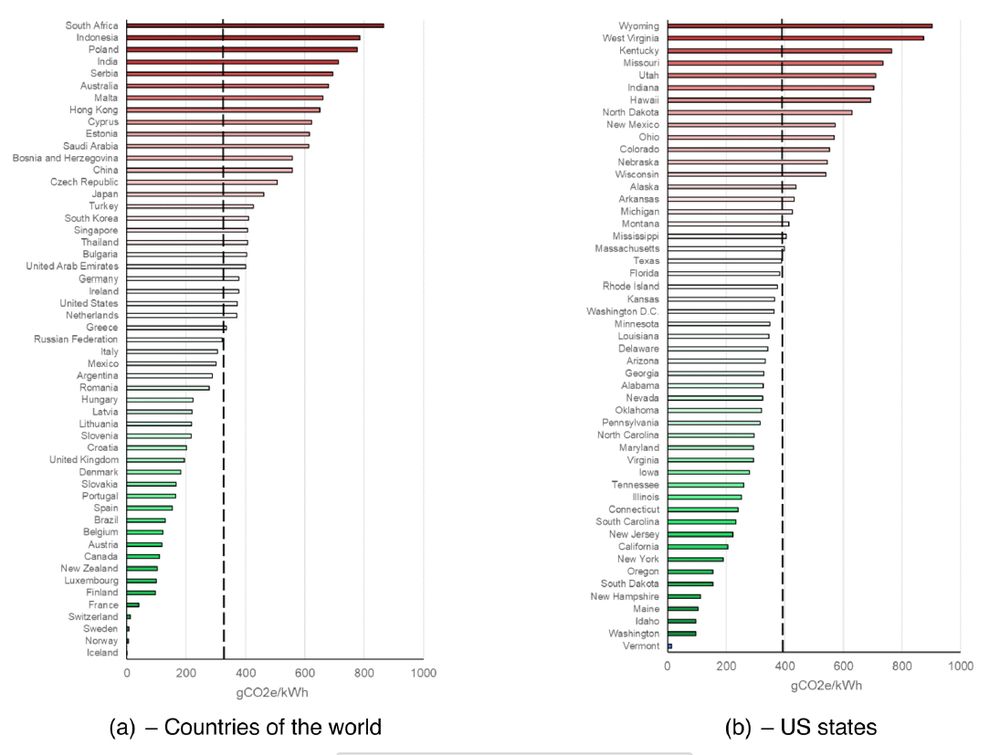
You can also consider choosing cloud computing services based in countries/regions with lower average carbon intensity.
2022 data for countries and US states ⬇️
The carbon intensity of electricity peaks at busy times and drops overnight and at the weekend. By scheduling preprocessing/analysis to run at low intensity times, you can use the same amount of energy while emitting less carbon.
Data for the UK ⬇️
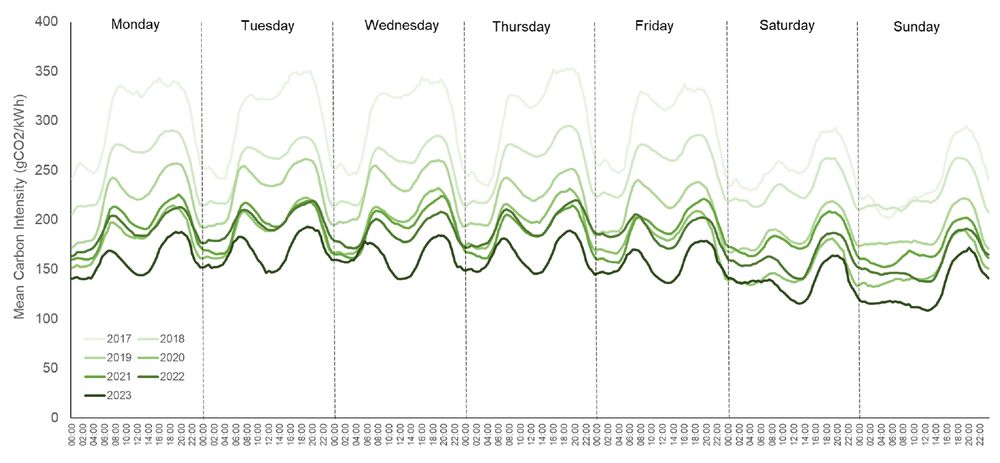
The carbon intensity of electricity peaks at busy times and drops overnight and at the weekend. By scheduling preprocessing/analysis to run at low intensity times, you can use the same amount of energy while emitting less carbon.
Data for the UK ⬇️
You can now find recordings of all our spreakers on YouTube!
www.youtube.com/playlist?lis...
We discussed a number of topics... 🧵

You can now find recordings of all our spreakers on YouTube!
www.youtube.com/playlist?lis...
We discussed a number of topics... 🧵
eicworkshop.info
Come along to learn more about the carbon footprint of your research computing, and how it can be reduced 🌱

eicworkshop.info
Come along to learn more about the carbon footprint of your research computing, and how it can be reduced 🌱
We found that dissociable default mode network (DMN) subnetworks support retrieval of contextual and emotional associations, seperately from processing of retrieval demands
www.biorxiv.org/content/10.1...
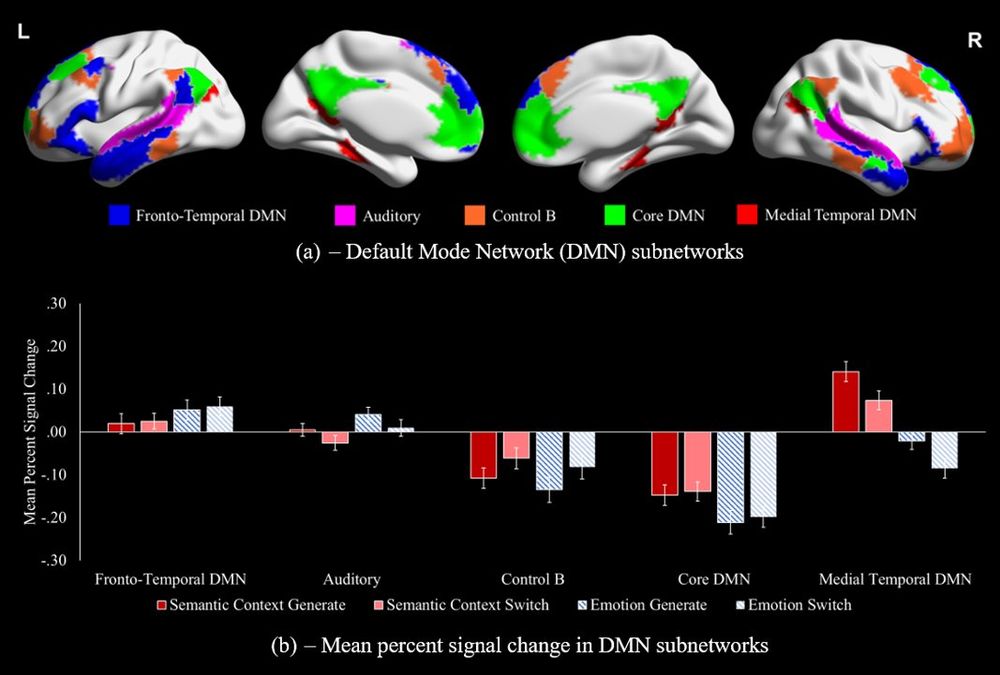
We found that dissociable default mode network (DMN) subnetworks support retrieval of contextual and emotional associations, seperately from processing of retrieval demands
www.biorxiv.org/content/10.1...

